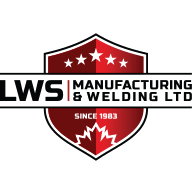Food-Grade Welding Mistakes to Avoid
Welding for food-grade applications is extremely delicate work and it can be easy for a welder to make a mistake if they are not familiar with the requirements for food-grade welding. At LWS Manufacturing & Welding, each of our welders are highly trained and experienced in performing welds for food-grade applications. Some of the food-grade welding mistakes that our welders are trained to avoid include:
1. Not Removing Burrs and Sharp Edges
While leaving small burrs or sharp edges on metal surfaces can be acceptable for certain industries, it is absolutely unacceptable to leave them on food-grade equipment. This is not only because burrs and sharp edges can cause injuries to workers but also because they can compromise the overall sanitation of the metal surface. Burrs and sharp edges must be completely removed through sanding, electropolishing, or a similar process.
2. Over-Stressing Materials
It is important for welders to avoid using techniques that could cause too much stress on the metal surface, especially when it comes to using food-grade stainless steel. This is because certain welding processes can reduce the integrity of the protective oxide layer that keeps stainless steel stainless. Stripping the oxide layer off of a piece of stainless steel will contaminate the surface, making it susceptible to corrosion. A welder who is familiar with food-grade welding requirements will use techniques that will minimize the impact of the welding process on the metal’s chemical resistance properties.
3. Bolting Frameworks
When it comes to food-grade welding, it is extremely important to ensure that all surfaces are completely smooth. This means that all connections in piping and other metal parts have to be sealed together and not just bolted. Any screw threads that have to be used for a piece of food-grade equipment must be tightly sealed to create a smooth surface.
4. Using Incorrect Filler Materials
Using the right filler material when bonding together two metals is crucial, as not doing so can lead to the metal corroding. A welder who is experienced in working on food-grade applications will often use a welding procedure that does not require filler or will only select a filler that they know will not compromise the integrity of the metal.
If you would like to learn more food-grade welding mistakes to avoid, or if you are interested in our welding services, please contact LWS Manufacturing & Welding at 604-854-1277 or by filling out a contact form on our website.




